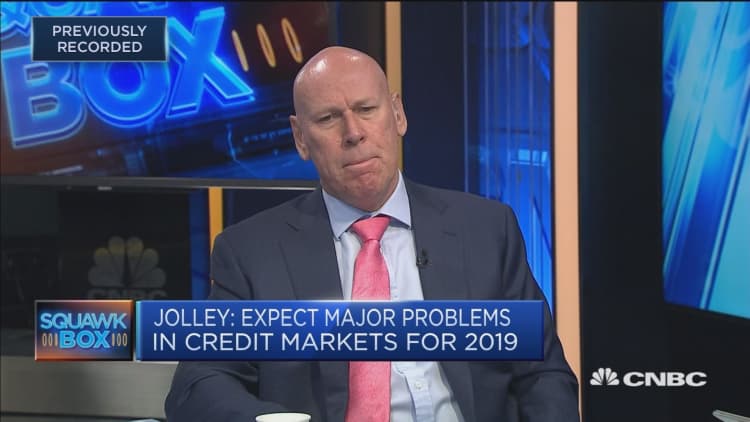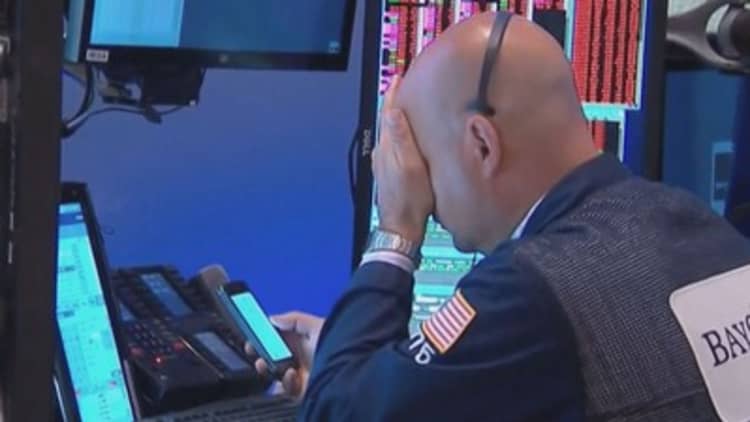
Volatility on Wall Street has led shares across the globe on a wild ride in recent months, resulting in a number of stock markets dipping into bear territory. That's set to worsen in the new year, experts told CNBC on Monday.
Bear markets — typically defined as 20 percent or more off a recent peak — are threatening investors worldwide. In the U.S., the Nasdaq Composite closed in a bear market on Friday and the entered one on Monday. Globally, Germany's DAX, China's Shanghai Composite and Japan's Nikkei have also entered bear market levels.
Major market risks remain, experts said. The Federal Reserve is likely to continue raising interest rates and worries about a global economic slowdown — made worse by a trade war between the U.S. and China — are mounting.
"I would love to be more optimistic but i just don't see too many positives out there. I think the worst is yet to come next year, we're still in the first half of a global equity bear market with more to come next year," Mark Jolley, global strategist at CCB International Securities, told CNBC's "Squawk Box."
Fed to tighten further
For Jolley, the big risk lies in the credit markets. With the Fed projecting another two interest rate hikes in 2019, companies will find it increasingly difficult to service their debt causing some to default or get downgraded, he said.
Such weakness in the credit markets will spill over to stocks, noted Jolley.

"My core scenario will be a credit event, which will further weigh on equity markets, which will definitely weigh on high growth sectors like tech," he said.
More generally, investors have fewer reasons to be optimistic now because the Fed tightening monetary policy means there will be less money for investments, said Vishnu Varathan, head of economics and strategy at Mizuho Bank.
"There is really no conviction for markets to buy back because they're not sure this is the bottom, and so they are thinking this is the proverbial falling knives," Varathan told CNBC's "Squawk Box."
US-China trade dispute
Further tariff escalations between the world's two largest economies are on hold until early-March next year, but what will happen after that is anyone's guess, noted Vasu Menon, OCBC Bank's vice president of wealth management.
Trade tensions between the U.S. and China have often been cited as a major risk to global economic growth. The International Monetary Fund, for example, downgraded its growth forecasts because it saw trade tensions between the U.S. and its major partners starting to dampen economic activity.
Uncertainties on the trade front will weigh on markets in the coming months until more clarity on where the fight is headed emerges toward the end of the 90-day tariff ceasefire, Menon told CNBC's "Squawk Box."
"Valuations are looking attractive, but you've got to have a strong risk appetite because I think markets are going to be very choppy," he said.


